Our collection presents unforgettable moments for gender equality and women’s rights in the world in 2021, and list some of the pioneers of women’s struggle and their achievements.
The ‘pole star’ of the public opposition: The resistance of the women’s movement in Turkey
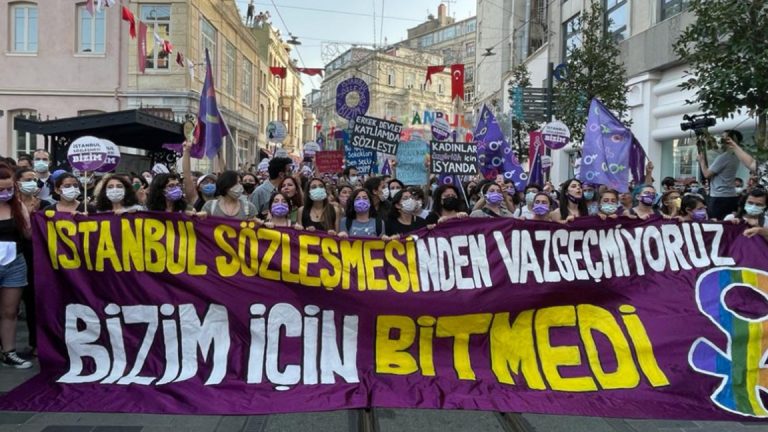
The women’s movement in Turkey has never surrendered to male domination which became more violent during the AKP rule, and has always managed to maintain its determination in the fight for rights. They have become the ‘pole star’ of the public opposition. This year, the women’s movement raised its voice against many social problems with courage, defended its demands in the streets and strongly built solidarity among women.
Against the discussion of withdrawing from the Istanbul Convention signed in 2011 which was brought to the agenda by the AKP government, women defended the convention wholeheartedly, resorted to judicial remedies, and worked to ensure that the EU and international institutions engage in the the struggle. The women’s movement has never stopped fighting. While many applications for a stay of order were filed in the Council of State, women defended the convention on the streets with their signature slogan: ‘The Istanbul Convention Keeps Alive.’
Besides, women’s organizations and activists has further enlarged the struggle for equality and rights of women with their struggle against the 5th Judicial Reform Package that seriously threatens women’s and children’s rights, by putting pressure on political parties for equal representation of women in politics and through legal support and campaigns against violence against women.
The leading figures of the women’s struggle were deemed worthy of many international awards this year. Former United Nations Special Rapporteur on Violence Against Women, sociologist Prof. Dr. Yakın Ertürk was awarded the 2020 Human Rights Award. We Will Stop Femicide Platform won the Finnish Prime Ministry’s International Gender Equality Award. Lawyer and women’s rights advocate Nazan Moroğlu has been selected to the ‘100 Women Pioneers in the World’ list of Graduate Women International (GWI). The Franco-German Prize for Human Rights and the Rule of Law was given to human rights defender Nebahat Akkoç, and the International Hrant Dink Award was given to women’s rights defender and lawyer Canan Arın.
‘We do not have to stay silent’: Afghan women resisting Taliban rule
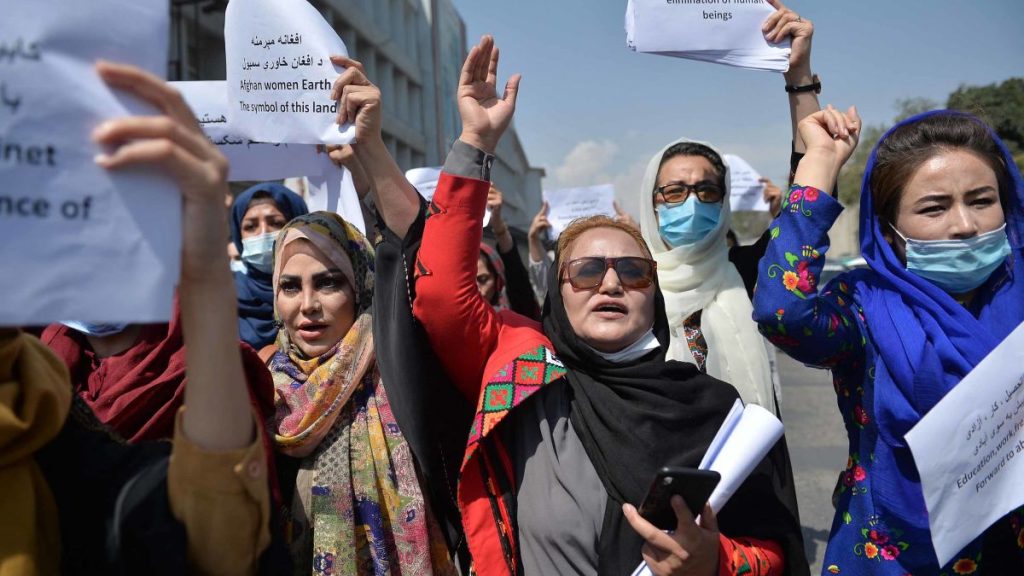
The Taliban takeover of the country in August 2021 has irrevocably changed the lives of millions of Afghans, especially women. Women were prevented from continuing their education, going out without a man, and they were advised not to go to work except in non-compulsory situations.
Afghan women, whose existence as a woman cannot even be tolerated, are fighting with great courage for their right to equal education and work and their right to take part in the government, despite all this. Some go into the fields to make news, resist and claim their existing rights. Others take to the streets to protest, demand their rights, raise their voices for the right to decent life, education and work.
A lifeblood to the struggle for free and autonomous universities: Boğaziçi resistance
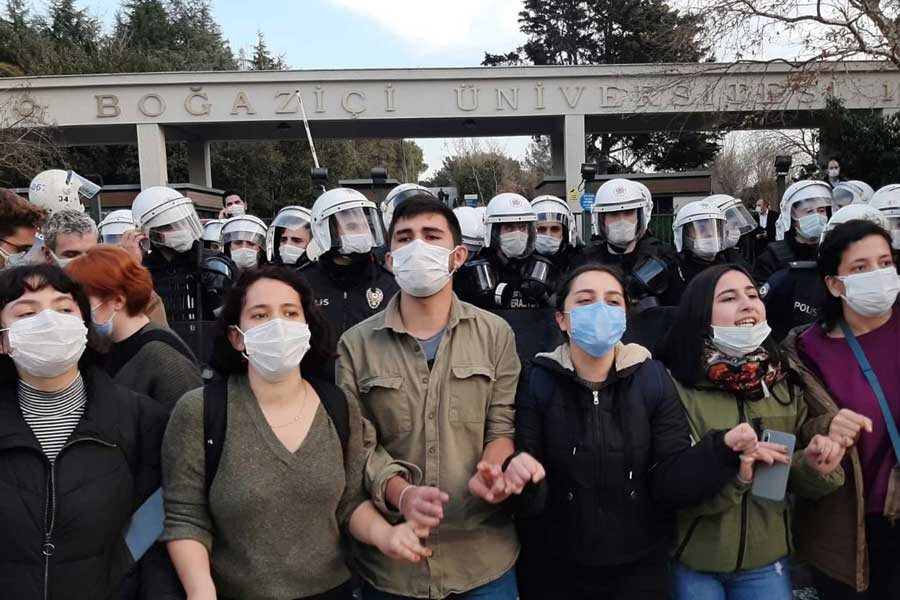
With a Presidential decision published in the Official Gazette, President and ruling Justice and Development Party (AKP) Chair Recep Tayyip Erdoğan appointed Prof. Melih Bulu, an academic from outside Boğaziçi University’s academic community, as the rector of the university on January 2, which was met with harsh criticism and protests of students, academics and alumni.
Amid these protests, Erdoğan removed Bulu from office with a Presidential decision on July 15; the Council of Higher Education (YÖK) appointed his vice rector Prof. Naci İnci as the acting rector.
In the first days of 2021, the resistance of Boğaziçi University is about to complete its first year. Students and academics still continue to voice their demands for free and autonomous universities and that the rector is chosen through democratic elections rather than appointment by the President.
However, the resistance was frequently targeted by the government throughout the year and faced disproportionate interventions by law enforcement and the judiciary.
Although the resistance has a tendency to de-escalate from time to time, like any long-lasting resistance, it has already written down its name in the history of the resistance. However, many protesters paid a serious price in the past year: Students were arrested, their scholarships were cut off, expelled from their dormitories; contracted academics were dismissed, some courses were closed.
A student from the Physics Department, Ersin Berke Gök and the History Department, Caner Perit Özen are still detained in Silivri Prison.
‘You will never walk alone’: Women’s solidarity in Poland
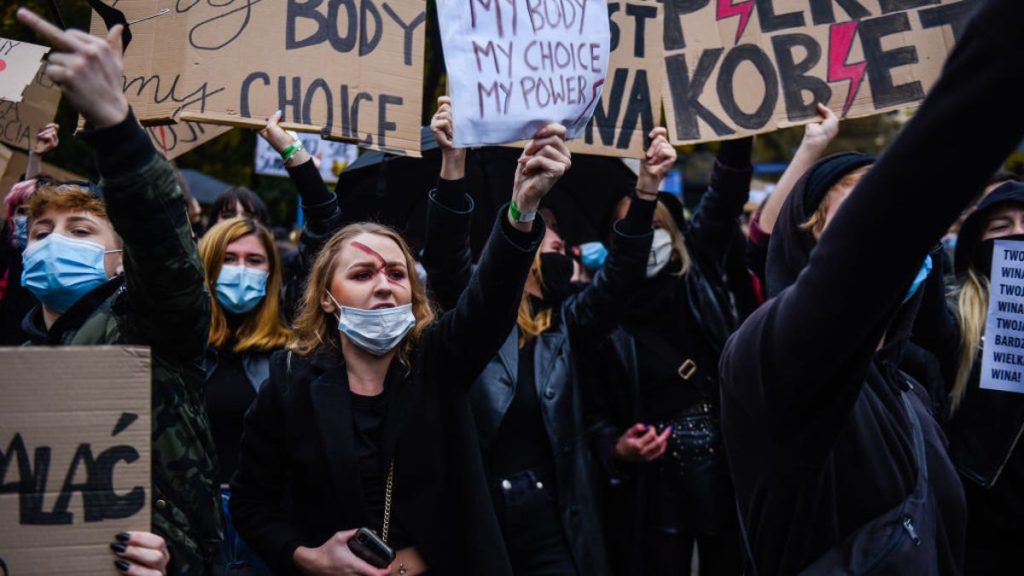
Since 2016, Polish women have been fighting with great courage to reclaim abortion rights assaulted by the right-wing administration and the Catholic church. ‘You Will Never Walk Alone’ has become a rallying cry for the protesters, emphasizing the sense of solidarity and sisterhood that pushes the movement forward. Women who have repeatedly taken to the streets to defend their rights and revoke the abortion ban that came into effect in Poland earlier this year are now closer than ever to a final victory.
As a matter of fact, the abortion debates that flared up after the death of a woman in Poland last November due to the abortion ban have come to an end for now. The bill coding abortion as murder was rejected by lawmakers, bringing one step closer to recognizing abortion as a right.
Another field of struggle for Polish women is the Istanbul Convention. Although Poland ratified the convention in 2015, ‘withdrawal’ debates have also been on the agenda in recent years. The fact that conservative circles pressure to withdraw from the Istanbul Convention shows a great similarity with Turkey.
Greetings to all the Polish women who gave this message on November 25th in 2021: “We need to encourage each other. Sisterhood is a source of pride for all of us. At the end of the long-run process, each woman will liberate herself and each other.”
Women at the forefront of the struggle for environmental rights
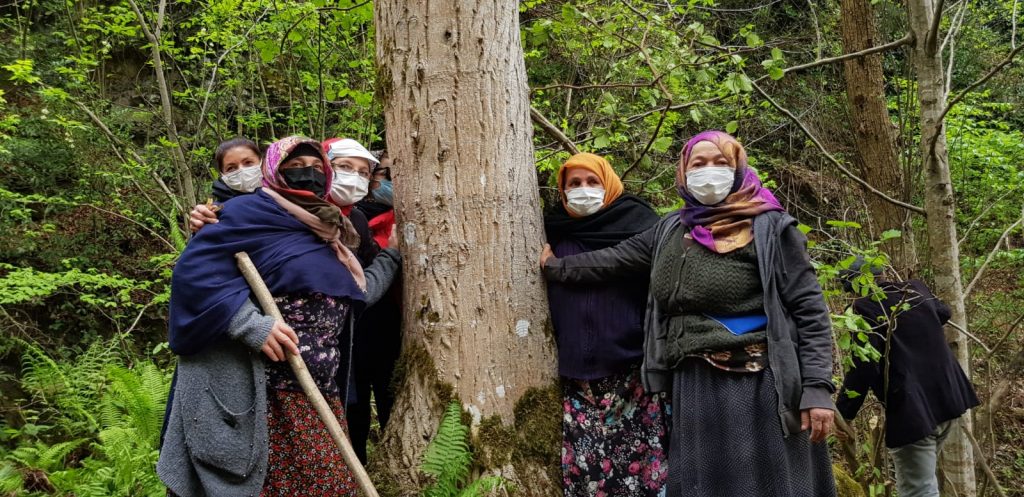
This year, women have been at the forefront of the fight for environmental rights waged against the ever-increasing destruction of nature in Turkey and in the world.
It has been repeatedly demonstrated by scientific data that women are more affected by the environmental destruction than men. One of these studies belongs to the UK-based feminist environmental organization Women’s Environmental Network. According to their report, more than 10 thousand women die every year due to climate crisis. Twenty million of the 28 million people who migrated due to the disasters caused by the climate crisis are women. Moreover, even if women somehow survive the disasters, this time they face the threat of physical and sexual violence. Most women staying in shelters after the disaster are exposed to harassment, rape and violence.
In Turkey, among the women who have been at the forefront of the fight for environmental rights in 2021, were women from İkizdere who were very active in the resistance started by the people against the stone quarry in the region and women from İkizköy, who fought against the coal mine in Muğla İkizköy.
During their resistance, the women tried to raise their voice, sometimes by standing in front of the heavy equipments, sometimes by resisting the police shields, and sometimes through the videos.
‘Women’s leadership for a happier future’: 9 countries opted for a female president or prime minister

The UN World Happiness Report, released this year, revealed that happiness can actually be a public policy with highly successful results. And public policies that prioritise happiness are often supported by female leaders. However, according to the UN Women and Inter-Parliamentary Union 2021 Women in Politics Map, gender equality in political representation all over the world has still not reached the desired level. On the other hand, there have been many developments that reinforce hope all over the world this year.
After the Merkel period in Germany, 8 women and 8 men took part in the new cabinet of the government, which was established by the Social Democratic Party (SPD) and the Greens and Free Democratic Party (FPD) coalition under the presidency of Olaf Scholz. Thus, equal representation was ensured in the German cabinet. In the general elections held in Iceland, 30 women deputies were elected to the 63-seat parliament, and the representation of women in the parliament rose to 47.6 percent. This ratio puts Iceland first in the European rankings. Also 12 women ministers were elected to the new 17-member cabinet in Albania.
Nine countries opted for a female head of state or prime minister.
Kaja Kallas became the first woman prime minister elected by Estonia.
Samia Suluhu Hassan became the first woman president of Tanzania.
Vyosa Osmani, was elected president of Kosovo. Osmani, the country’s second woman president, is seen as a role model for women in a country with a patriarchal social structure.
Fiame Naomi Mata’afa became the country’s first woman prime minister, defeating Tuilaepa Sailele Malielegaoi, the ‘second longest-serving president in the world’, who has been the prime minister since 1982 in Samoa, the island country of the South Pacific, for more than 20 years.
With the appointment of Natalia Gavrilita, nominated by Maia Sandu, the first female president of Moldova, to the post of prime minister, the weight of women in the country’s administration has increased.
Tunisian President Kays Said appointed Necla Bouden Romdhane as prime minister after suspending the powers of the Assembly after the political crisis. Romdhane became the first woman prime minister of the country and the Arab region.
The country’s first woman Supreme Court judge, Sandra Mason became the first woman president of the Caribbean island of Barbados.
Magdalena Andersson made history as the first woman to become a prime minister after she was elected as the new leader of the ruling Social Democratic Party.
Xiomara Castro, wife of the former president of Honduras, Manuel Zelaya, who was overthrown in 2009, declared her victory according to the preliminary results of the presidential elections. Left-wing candidate Castro, if elected, will become the country’s first woman president.
Hope for the future: Leading women in science
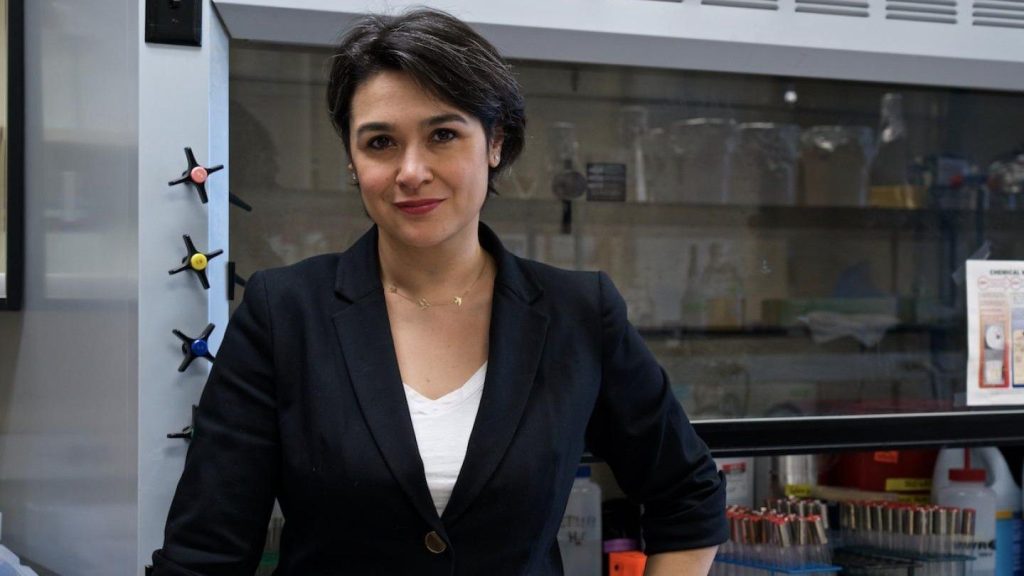
Women scientists lead groundbreaking research around the world, but despite their remarkable discoveries, women still represent only 29 percent of researchers globally, and their work rarely gets the recognition it deserves.
Only 35 percent of students enrolled in STEM-related fields are women. To date, only 3 percent of Nobel Prizes in Science have been awarded to women, and only 11 percent of senior research in Europe has been conducted by women. In Turkey, women are employed at a rate of 37% in all fields of R&D, 35% in natural sciences and engineering, and 43% in social sciences and humanities.
Although they are still behind in representation, women scientists make great achievements every day. As the SES Equality and Justice Platform, some of the women scientists who were caught by our radar from Turkey and the world in 2021 are as follows:
Filipino journalist Maria Ressa won the Nobel Peace Prize, becoming the 18th woman who holds the prize in the 126-year history of the Nobel.
Prof. Dr. Elif Vatanoğlu Lutz became the first woman from Turkey to be awarded the Gusi Peace Prize, known as the Nobel of Asia which is given to people who contribute to world peace.
Director of NASA Astrobiology Research Center, Dr. Betül Kaçar received a Stanley Miller Early Career Award from the International Society of the Study of the Origin of Life (ISSOL) for her outstanding contributions to the origins of life research.
Sabancı University Faculty of Arts and Social Sciences Faculty Member Prof. Dr. Ayşe Betül Çelik received the ‘Order of the Star of Italy’ award, which is the highest rank given by Italy.
Ayşe Buğra, a prominent emeritus academic from Boğaziçi University, was included in the list of the most influential scientists in the world, created every year by scientists from Stanford University.
Didem Unat, Berkeley Lab’s 2012 Luis Alvarez Fellow in Computing Sciences, won the 2021 ACM SIGHPC Emerging Woman Leader in Technical Computing award. Unat became the first scientist to receive the award given by the International Computer Science Society ACM SIGHPC outside the US.
Assoc. Prof. Elif Nur Fırat Karalar, TÜBA-GEBİP Member Award winner and Koç University Molecular Biology and Genetics Department received the ‘2021 Sabri Ülker Science Award’, one of the most prestigious awards in the world of science.
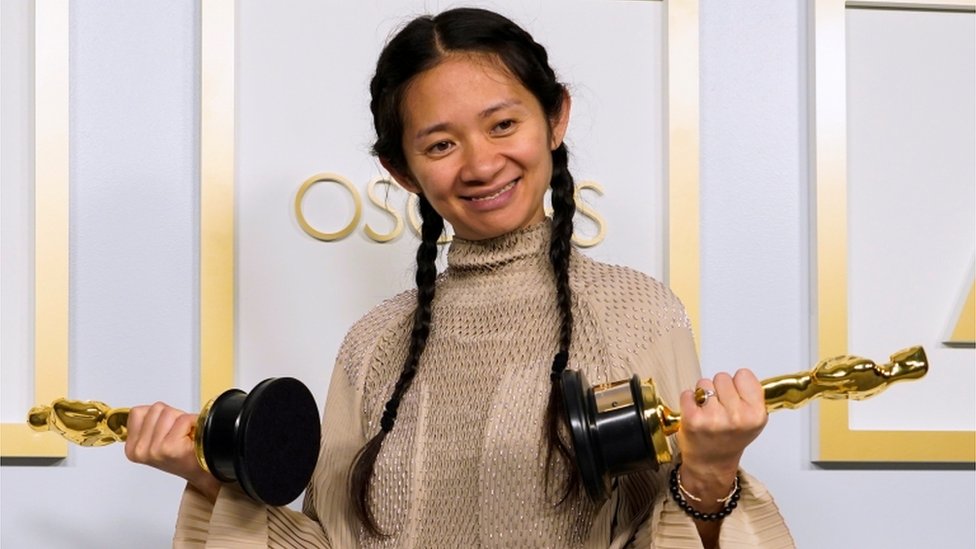
Chloé Zhao made history this year at the Oscars, when she became the first woman of colour and the first woman of Asian descent to earn best director at the Academy Awards.
The “Nomadland” director was only the second woman to win the award, following the footsteps of Kathryn Bigelow, who won for directing “Hurt Locker” in 2010. This was also the first year ever that two women were nominated for best director. In fact, during the 93-year history of the Oscars, only seven women have been nominated in the director category, including 2021 nominees, Zhao and Fennell.
French filmmaker Audrey Diwan won the Golden Lion, the Venice International Film Festival’s top honor for her second feature, ‘Happening’, just a few months after the Palme d’Or at Cannes was awarded to Titane by Julia Ducournau. Ducournau has become the first female director in 28 years to win the Cannes Film Festival’s Palme d’or.
Female athletes challenge the establishment
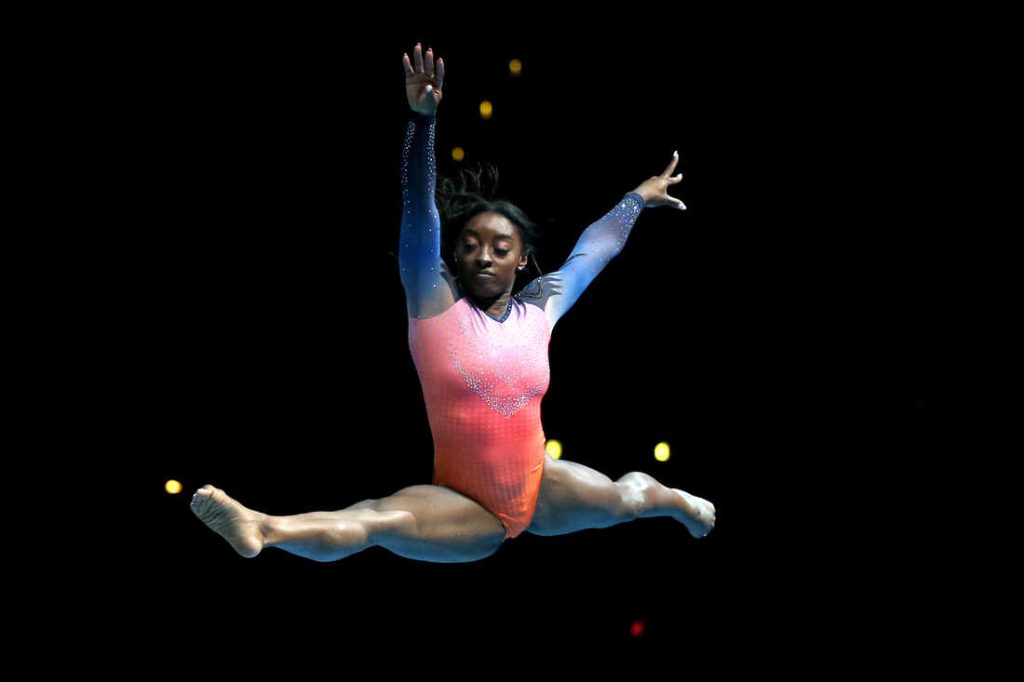
Female athletes no longer shy away from setting their own terms against the sexist and harsh terms of the sports world, opposing uniform regulations and code of conduct, which have a history of prioritising feminine aesthetics over comfort and established expectations over mental health.
This year, for example, the Norwegian women’s beach handball team was fined for ‘improper clothing’ during the European Championships in Bulgaria. This was because they were playing in shorts, as opposed to the required skimpy bikini bottoms. The Norwegian federation has agreed to pay the fine on behalf of the players in a show of support. At the European Artistic Gymnastics Championships held in Switzerland, the dress code was protested by female athletes. German gymnasts decided to take a stand against their sexualisation, donning full-body suits. Protests pave the way for female athletes to have more control over how their bodies are presented while competing.
Arguably the greatest gymnast of all time, Simone Biles has redefined the female power in sports by showing that the order that has hitherto been imposed on female athletes need not continue. ‘She has opened the eyes of so many kids that were told they could not do it or they were not good enough or they didn’t have the body type’ says her coach Cecile Landi of Biles. Biles helped to propel mental health to the forefront of a broader cultural conversation this year. The gymnast, who pulled out of Olympic team finals at the Tokyo Olympics, announced that she was withdrawing to focus on her mental health. Team USA Gymnastics said, “We wholeheartedly support Simone’s decision and applaud her bravery in prioritizing her well-being. Her courage shows, yet again, why she is a role model for so many.”
Another female athlete who confronted the establishment of sports was tennis player Naomi Osaka. She dropped out of the French Open after after declining to attend media interviews that she said could trigger her anxiety. Osaka wasn’t just protecting her mental health. She was sending a message to the establishment: I will not be controlled.
Guiding light from Latin America: Chile is ready for a feminist constitution
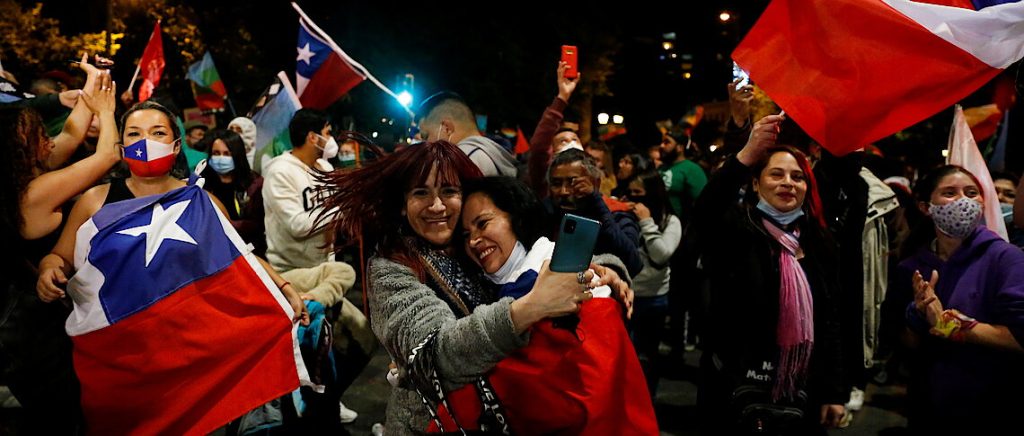
In 2019, the protests that spread all over the country after the student riots against the hikes in metro fares in Chile’s capital, Santiago, triggered the wind of change in the country. During the uprising, women were among the most ardent advocates of a constitutional amendment that would guarantee equal rights and participation in the public sphere. The phrase “The revolution will be feminist—or it won’t be a revolution,” was etched onto city walls, projected onto buildings, and chanted by thousands of women. With the referendum held after the protests, it was decided to write a new constitution by a constitutional convention, all of which were elected by the people. The new convention is the first in the world to be drafted by an equal number of men and women.
Elisa Lancon, a Mapuche native and a faculty at the University of Santigo, who was elected president of the Constitutional Convention, is leading one of the most important and complex assignments in recent Chilean history. “I want to thank everyone for voting for a woman to change this country’s history,” Loncon said in her speech after she was elected, in both Mapuche language and Spanish.
The majority of those in the Constitutional Convention are left-leaning, feminist and ecologist-minded people who did not work in the public sector. Consisting of seven sub-units, Constitutional Convention will focus on ‘political system, government, legislature and electoral system’, ‘constitutional principles, nationality and citizenship’, ‘state form, local government, equality, land justice, tax system’, ‘fundamental rights’, ‘ environmental and nature rights, economic model and commons’, ‘justice system, self-regulatory bodies and constitutional reform’ and ‘information systems, science and technology, culture and arts and Chile’s heritage’.
While the drafting process continues, left-wing candidate Gabriel Boric, who won the Chilean Presidential elections, said that his administration will focus on guaranteeing the rights of all indigenous people, sexual orientations and women, and leaving the ‘patriarchal legacy’ behind. Boric’s partner of Greek origin, feminist activist Irina Karamanos, announced that she would not adopt the title and role of ‘first lady’ with the following words: “The times have changed.”
A modern day Diyonjen seeking justice: Emine Şenyaşar
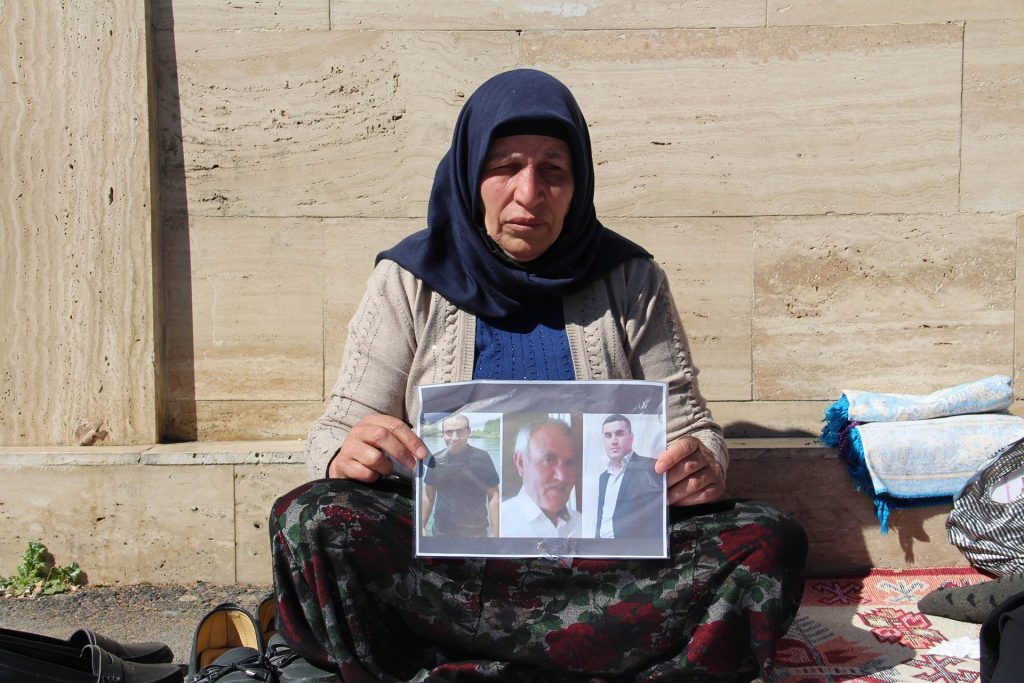
During the election campaign of ruling AKP Urfa MP İbrahim Halil Yıldız in Suruç, Urfa on June 14, 2018, an attack turned into an armed conflict, which claimed the lives of Yıldız’s brother Mehmet Şah Yıldız, shop owner Hacı Esvet Şenyaşar and his sons Adil and Celal Şenyaşar. Having lost his father and two brothers and been wounded himself in the incident, Fadıl Şenyaşar was discharged from hospital and detained on June 17. He was then arrested and sent to prison.
Demanding justice for two sons, husband and her arrested son, Emine Şenyaşar and her son Ferit Şenyaşar, who survived the attack, have been keeping a ‘justice watch’ in front of the courthouse. Şenyaşar, who has become a symbol of the Kurds’ is likened to a Greek Cynic philosopher Diogenes best known for seeking justice with a lantern.
The act of civil disobedience that Şenyaşar started with the demand for justice created a great discomfort in the ruling circle. So much so that a lawsuit is filed against Şenyaşar for insulting AKP Deputy İbrahim Halil Yıldız, while four more investigations are being carried out.
There has been a confidentiality order on the file of the investigation into the attack for 3 years, 3 months. The second appeal of the Şenyaşar family against the “confidentiality” order on the investigation into the second attack at the Suruç Public Hospital was rejected. The Constitutional Court, to which the family appealed, has not yet given its decision. One of the demands raised by the family on their justice watch is the removal of this confidentiality order.
‘Profits over safety’: Facebook Whistleblower Frances Haugen Raised Her Voice Publicly
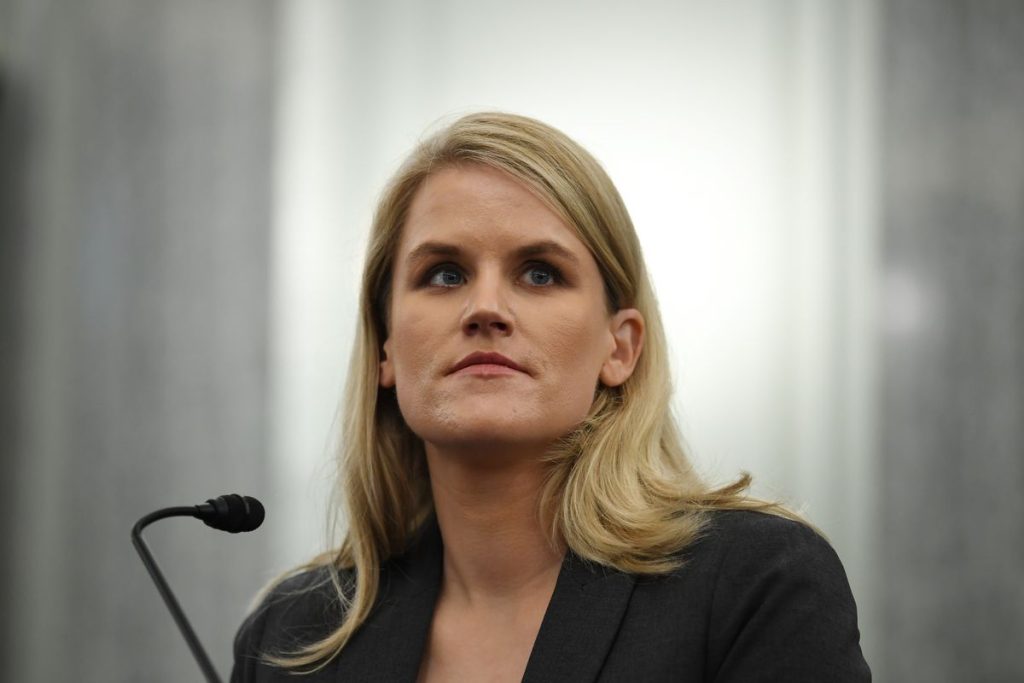
A former Facebook employee, Frances Haugen leaked documents proving that Facebook repeatedly prioritised ‘growth over safety.’
Revelations included documents that showed that celebrities, politicians and high profile Facebook users were treated differently by the company and that moderation policies were applied differently, or not at all, to such accounts.
But it’s allegations about Instagram that have been particularly worrying to the whole world.
Internal research by Facebook found that Instagram was impacting the mental health of teenagers but did not share its findings when they suggested that the platform was a ‘toxic’ place for many youngsters.
The disclosure of Haugen caused the shares of Facebook lost a market value of 632 billion dollars, its shares traded on the Nasdaq lost 5.75% in value.
Marriage equality advances around the world
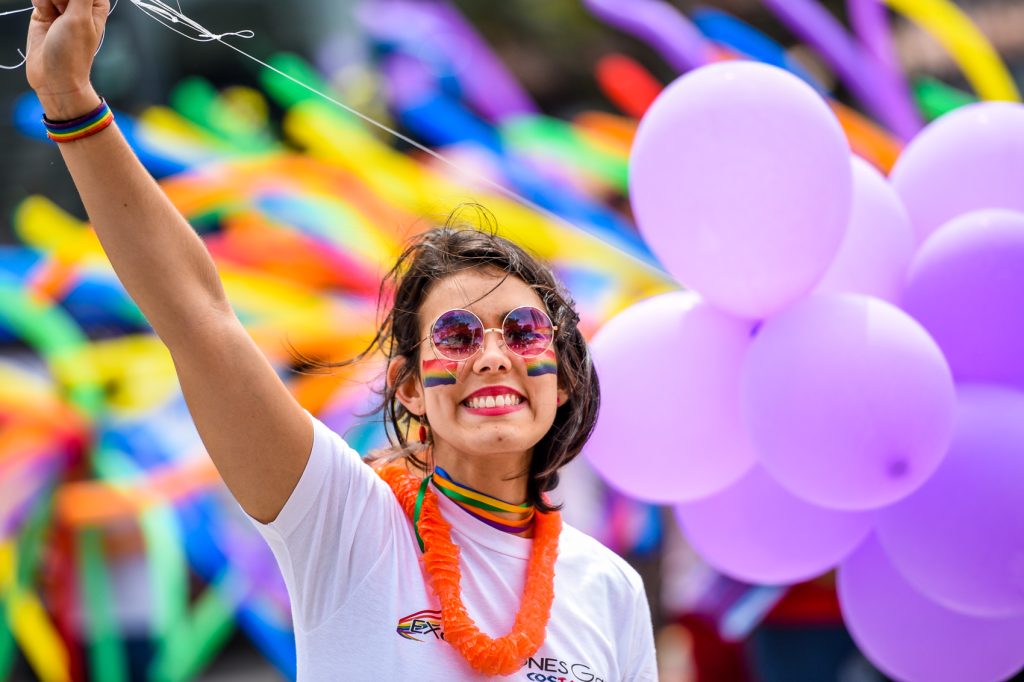
Switzerland announced that same-sex couples would be able to marry or convert their registered partnerships into marriage in the country, following a popular vote on the subject in September when 64.1% supported same-sex marriage. In December, Chile’s Congress passed a law to legalize same-sex marriage, becoming the 31st country where same-sex marriage is legal.
While there are still 69 countries that have laws criminalising homosexuality and a long way to go until there is universal recognition that love is love, 2021 saw some promising moves to decriminalise same-sex partnerships. In February, Angola signed into law a revised penal code to allow same-sex relationships and ban discrimination on the basis of sexual orientation. With a landmark decision in March, a Japanese court ruled that the government’s ban on gay marriage is unconstitutional, paving the way for marriage equality. (UN Women)
In Turkey, on the hand, LGBTI+ movement has been on a constant struggle since years. The very existence of LGBTIs, who are the target of all kinds of violence, including emotional, economic, verbal, physical, sexual and cyber violence, has been an act of resistance. However, they also crown their existence with mass resistance and street actions.
Despite being banned by the highest authorities of the state, thousands of people gather in city squares every year and demand for equal citizenship in Turkey. This year at least 20 people were detained as police resorted to using tear gas and rubber bullets to disrupt the annual Pride Parade in Istanbul.
Liana Georgi, as a German citizen who is a musician and lives in Istanbul, attended 19th Istanbul Pride. She walked in front of hundreds of police officers while saying: “Love is here. Hope is here.” The video of her walk went beyond borders, and became viral on social media.
Peng Shuai: The tennis star at centre of China’s biggest #MeToo allegation
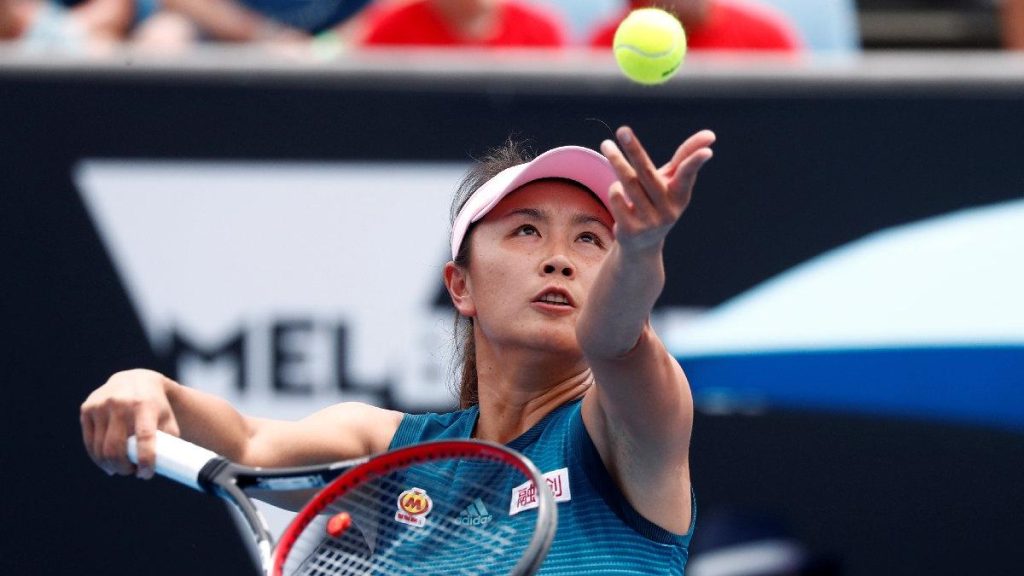
World-famous tennis star Peng Shuai publicly announced that she was sexually assaulted by China’s former Vice Premier Zhang Gaoli last November. It is the first time such an allegation has been made against one of China’s senior political leaders and it encouraged many others to come forward with their own experiences of sexual harassment.
Peng said, “I have no evidence and it was impossible for me to leave any evidence. You were always afraid that I would bring something like a tape recorder and record the evidence. There is no audio recording, no video recording, but I have real experience.”
After the allegation, she went missing and wasn’t seen in public for two weeks, sparking concern for her safety with the Women’s Tennis Association (WTA) and Amnesty International both taking up her cause.
Shuai attended a cross-country skiing event in Shanghai where she said in a video posted by Singaporean news outlet that she has “never said or written that anyone has sexually assaulted me.” In the video, she said that she had personally written to Women’s Tennis Association (WTA) head, Steve Simon, denying the allegations. In the video, she said that she had personally written to Women’s Tennis Association (WTA) head, Steve Simon, denying the allegations.
Concerns arose that Shuai might have withdrawn her allegations after receiving threats.
‘All for one, one for all’: Turkey’s women champions
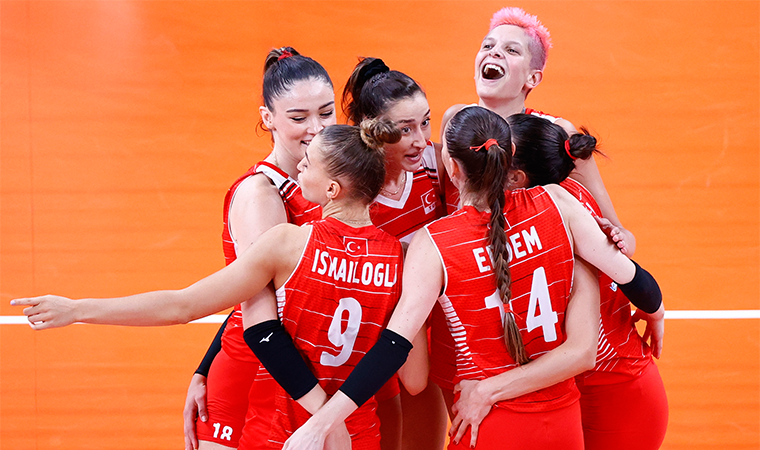
With a year of delay because of the COVID-19 pandemic, the Tokyo 2020 Olympics kicked off on 23 July 2021 with almost 49 per cent of participating athletes being women, making it the most gender-balanced Games in history. This year there were many women athletes who represented Turkey at the Olympics and won historic victories.
Turkey’s national women’s volleyball team became the 5th at the 2020 Tokyo Olympic Games, for the first time in its history. They ranked third in the European Championship after defeating the Dutch national team and won the bronze medal.
These women, popularly known as ‘The Sultans of the Net’ managed to break down the walls of social polarization, albeit for a short time. Embracing their differences, showing solidarity, and exhibiting a self-confident struggle, as they are popularly known as ‘The Sultans of the Net’ managed to break down the walls of social polarization, albeit for a short time, as they they cherished diversity and solidarity among themselves.
In the 2020 Tokyo Olympics, female athletes competing for Turkey went down in sports history by winning 1 gold, 1 silver and 3 bronze medals. While Busenaz Sürmeneli won the gold medal and Busenaz Çakıroğlu the silver medal in boxing, Yasemin Adar bronze medals in wrestling, Hatice Kübra İlgün in taekwondo and Merve Çoban in karate.
This year, 45 female athletes from different sports branches from Turkey participated in the 2020 Tokyo Paralympic Games and won 1 gold, 3 silver and 4 bronze medals. Goalball Women’s National Team won the gold medal, Ayşegül Pehlivanlar won the silver medal in shooting, Öznur Cüre in archery, Meryem Betül Çavdar in taekwondo and Besra Duman won the bronze medal in weightlifting, Kübra Korkut in table tennis, Zeynep Çelik in judo, and Sevilay Öztürk in swimming.
Ngozi Okonjo-Iweala becomes the first woman and first African to lead the World Trade Organization
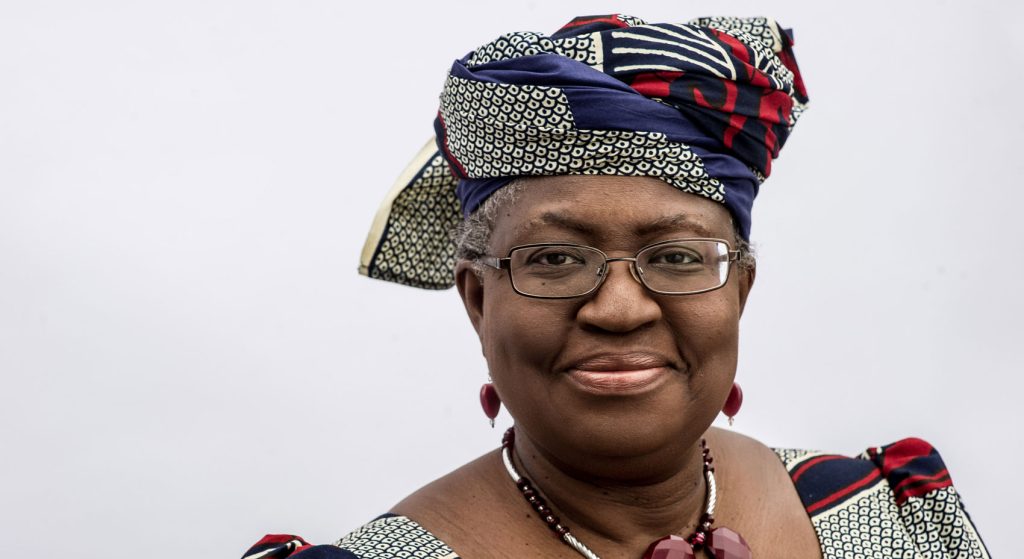
In March, Ngozi Okonjo-Iweala took office as the Director-General of the World Trade Organization, making her both the first woman and the first African to hold this position in the organization’s 26-year history. Okonjo-Iweala is no stranger to shattering glass ceilings, having been the first woman to become Nigeria’s Finance Minister and Foreign Minister. She survived the murky waters of politics in Nigeria, where her mother was kidnapped to send her a message, and rose to number two at the World Bank.
She thinks that WTO should be responsive to the challenge of facilitating the greater participation of women in international trade, particularly in developing countries, where greater efforts should be made to include women owned enterprises in the formal sector.

